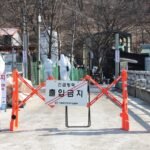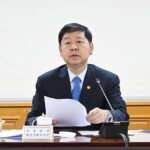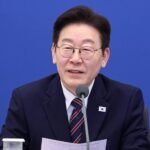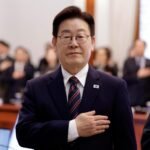Hyundai Motor’s Xcient hydrogen fuel cell truck
Hyundai Motor Co., South Korea’s top automaker, will transform its commercial vehicle plant in the country into the manufacturing hub for its hydrogen-powered buses and trucks amid intensified competition with vehicles imported from China and Europe.
According to industry sources on Monday, Lee Dong-seock, president and head of the automaker’s domestic production division, said in a recent meeting with Hyundai’s union leaders that the company’s commercial vehicle plant in Jeonju, a city in the North Jeolla Province, will be its base for hydrogen fuel cell electric vehicles (FCEVs).
The plant produces electric buses such as County EV, the multi-purpose vehicle Staria, mid-size trucks and hydrogen-powered commute vehicles.
The move will help the Jeonju plant increase its factory operating rates, which currently stand at around 40%. With an annual production capacity of 100,000 vehicles, the factory manufactured only 39,934 units last year.
Hyundai Motor’s Xcient fuel cell trucks are loaded for exports
Earlier this year, Hyundai ramped up its annual hydrogen fuel cell bus production capacity to 3,100 units from 500 the year prior.
Sources said the Jeonju plant will begin building car transport trucks based on Hyundai’s Xcient hydrogen vehicle model, refrigerated trucks and fuel cell tractors within this year.
New hydrogen-powered express buses and low-floor metropolitan shuttle buses will be developed by 2027 and produced at the plant, they said.
DOUBLE WHAMMY
The move comes as Hyundai, a unit of Hyundai Motor Group, which also owns automaker Kia Corp. and auto parts maker Hyundai Mobis Co. under its wing, faces a double whammy of aggressive marketing in Korea by Chinese commercial vehicle makers and European big names such as Volvo, Mann and Mercedes-Benz.
Hyundai’s hydrogen fuel cell-powered trucks
According to Seoul-based automotive data provider CarIsYou, Chinese companies sold 1,372 units of large-size electric buses in Korea last year, accounting for 50.9% of the domestic electric bus market. It marked the first time Chinese electric buses have outsold Korean rivals in the domestic market.
Despite revised EV subsidy plans favorable for Korean vehicles, sales of Chinese-made electric buses reached 638 units in the first five months of this year, higher than 500 units of Korean-made electric buses.
In the domestic truck market, imported trucks, largely from Europe, sold 3,037 units in 2023, close to the Korean-made trucks’ sales figure of 3,677 units.
HYUNDAI LEADS HYDROGEN VEHICLE SECTORS
Hyundai Motor has been spending heavily to lead the global hydrogen-powered vehicle market.
In 2021, it invested in H2 Mobility Deutschland GmbH & Co., a German operator of hydrogen fueling stations, as Hyundai looked to gain ground in the growing European hydrogen-fueled vehicle market.
Hyundai’s Xcient is the world’s first mass-produced fuel cell electric heavy-duty truck launched in 2019.
Fuel cell electric vehicles, or FCEVs, are more expensive than battery electric cars (BEVs), but proponents say for long-haul transport, hydrogen-powered trucks have the advantage because they have a greater range.
By Jung-Eun Shin
newyearis@hankyung.com
In-Soo Nam edited this article.















